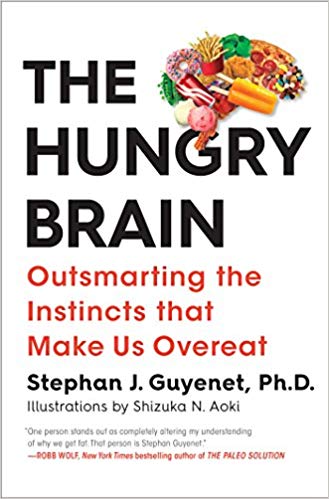
Now you know what I’m going to say:
If it’s a fad, forget it.
And if there were ever a fad diet, Whole30 is it. It has become especially popular among young(er) people, with Facebook groups and the whole nine yards. Meanwhile, actual nutritionists and dieticians, people who study science, are clutching their heads and moaning.
I could just re-write the posts I wrote on the food-sensitivity tests for my material on this eating plan, but I won’t, because there are some additional fats in the fire (ha!) here. First, let me tell you a story:
So, this woman I know said that she had been in a town where she had lots of old friends, and a group of them decided to go out to dinner.

 I don’t know how many people reading this post are following a food-sensitivity diet regimen or are supporting someone who is, but I’m sure there are some. So let me say first of all that my purpose here is not to offend but to inform. I got a little tickled/horrified recently with some comments regarding my keto diet posts. One woman said, in essence, “Why is Debi doing this? She’s not going to make any money by keto-diet bashing.” Then she named some diet celebrity whose
I don’t know how many people reading this post are following a food-sensitivity diet regimen or are supporting someone who is, but I’m sure there are some. So let me say first of all that my purpose here is not to offend but to inform. I got a little tickled/horrified recently with some comments regarding my keto diet posts. One woman said, in essence, “Why is Debi doing this? She’s not going to make any money by keto-diet bashing.” Then she named some diet celebrity whose 
 On to the next fad diet floating around out there! Remember, you don’t need me yammering at you in order to be able to evaluate these ideas. There are very, very simple things to look for:
On to the next fad diet floating around out there! Remember, you don’t need me yammering at you in order to be able to evaluate these ideas. There are very, very simple things to look for: Nothing stays in Vegas. That’s our starting point here: that every calorie you consume has to get used or disposed of by your body in some way. No calories simply disappear into thin air (although they may disappear somewhere else, as noted below). No calories are “free.” Every single molecule you eat must be dealt with. Your body doesn’t function like a car’s gas tank, when there’s an absolute limit of capacity that results in gasoline on the ground (and the gas station owner yelling at you) if you keep trying to outwit the automatic shutoff by “topping off” the tank and manually restarting the pump. Your esophagus doesn’t have an automatic shutoff valve. I’m not even sure where that organ would be best situated: above the larynx? Halfway between the mouth and the stomach? There’d be a food backup, I guess. Kind of gross, and maybe dangerous. You certainly can get into the “I can’t eat another bite” mode, but in reality the stomach’s capacity is very flexible and expandable. (Just ask the people who’ve had stomach-reduction surgery that leaves them with a greatly diminished stomach pouch. If they’re determined enough, they can outwit the surgery, either by eating constant small meals that don’t overstrain the new little pouch or by going ahead and eating too much. The pouch can stretch, eventually. Read about this and other dangers of the surgery at “
Nothing stays in Vegas. That’s our starting point here: that every calorie you consume has to get used or disposed of by your body in some way. No calories simply disappear into thin air (although they may disappear somewhere else, as noted below). No calories are “free.” Every single molecule you eat must be dealt with. Your body doesn’t function like a car’s gas tank, when there’s an absolute limit of capacity that results in gasoline on the ground (and the gas station owner yelling at you) if you keep trying to outwit the automatic shutoff by “topping off” the tank and manually restarting the pump. Your esophagus doesn’t have an automatic shutoff valve. I’m not even sure where that organ would be best situated: above the larynx? Halfway between the mouth and the stomach? There’d be a food backup, I guess. Kind of gross, and maybe dangerous. You certainly can get into the “I can’t eat another bite” mode, but in reality the stomach’s capacity is very flexible and expandable. (Just ask the people who’ve had stomach-reduction surgery that leaves them with a greatly diminished stomach pouch. If they’re determined enough, they can outwit the surgery, either by eating constant small meals that don’t overstrain the new little pouch or by going ahead and eating too much. The pouch can stretch, eventually. Read about this and other dangers of the surgery at “ I read this book way back in 2014, having seen it on the new-book shelves at our local library. It had a catchy cover, and I was just getting awakened (awoke?) to how high my sugar consumption was and how I needed to cut down. So I thought the book might help me with my own struggles. But I have to say that I didn’t enjoy it much. I remember skimming parts and thinking that the book was losing steam as it went on.
I read this book way back in 2014, having seen it on the new-book shelves at our local library. It had a catchy cover, and I was just getting awakened (awoke?) to how high my sugar consumption was and how I needed to cut down. So I thought the book might help me with my own struggles. But I have to say that I didn’t enjoy it much. I remember skimming parts and thinking that the book was losing steam as it went on.  Ah, the wonderful world of so-called “healthy” or “alternative” sweeteners! A food blog that I follow faithfully,
Ah, the wonderful world of so-called “healthy” or “alternative” sweeteners! A food blog that I follow faithfully, 